Special thanks to Adrianna of IVP for a review copy of this book.
 Way back in September of last year I mentioned my desire to read Worship and the Reality of God, and guessed that I would “be pumping my fist in agreement in one chapter and shaking my head the next.” That’s pretty much how it turned out, though my reaction would often change from page to page. I, for one, appreciate this in a book. John Jefferson Davis is professor of Systematic Theology and Ethics at Gordon-Conwell Theological Seminary and, as my previously linked post indicates, an eclectic theologian (in a very good sense). Davis’ concern in this book is the lack of understanding of the presence of God in Christian worship, hence the subtitle “An Evangelical Theology of Real Presence.”
Way back in September of last year I mentioned my desire to read Worship and the Reality of God, and guessed that I would “be pumping my fist in agreement in one chapter and shaking my head the next.” That’s pretty much how it turned out, though my reaction would often change from page to page. I, for one, appreciate this in a book. John Jefferson Davis is professor of Systematic Theology and Ethics at Gordon-Conwell Theological Seminary and, as my previously linked post indicates, an eclectic theologian (in a very good sense). Davis’ concern in this book is the lack of understanding of the presence of God in Christian worship, hence the subtitle “An Evangelical Theology of Real Presence.”
As Davis sees it, there are “competing ontologies” working within the church today (p21). There’s the scientific materialism (the ontology of modernity), digital virtuism (the ontology of postmodernity) and trinitarian supernaturalism (the ontology of eternity). As you can see with just that short list, this is no easy book to plow through. If you are not familiar with philosophical categories (ontology and epistemology being the two biggest), then I’m not sure how much of this book makes sense (another example, the John Zizioulas quote from page 178: “Pneumatology is an ontological category in ecclesiology”). Davis demonstrates how the first two ontologies have diluted Christian worship, specifically in how we understand God’s presence in our worship. To put it differently, churches act as if God’s is not truly present when we gather to worship, and this is largely because we have a skewed view of reality (ie, our ontology is off).
So Davis has some strong words of critique for modern Christian worship, which is no surprise coming from a seminary professor (especially one from Gordon-Conwell). But what I love about Davis is that he doesn’t simply point the finger at others, but calls theologians and seminaries to task for not spending enough time thinking and training people in worship (pp9-10). Davis takes this topic seriously and personally, which shows throughout this book (more on this point at the end of this review).
I won’t take the time to summarize Davis’ argument for the lack of understanding of God’s presence in our worship, in part because I think he’s basically right. Christians across the board, and I’m including we charismatics who allegedly have a strong theology of God’s presence through the Holy Spirit, do not show up to church excited to gather with other believers in the presence of God. There is little-to-no expectation of encountering God. Davis attempts to demonstrate how this has happened through the aforementioned competing ontologies and their impact on our view of reality (interestingly, I had a lot of trouble keeping up with his discussion of modern technology, virtual gaming and its impact on the church, whereas many people my age would understand that far better than the philosophical portions of the discussion).
What I want to get to is Davis’ recommendations for fixing this problem. Davis’ stance is that with the loss of liturgy we have lost the belief in the real presence of God in Christian worship. He believes that a more regular practice of the Eucharist would lead Christians back to a place of taking the presence of God more seriously in worship. Davis also argues that a return to the regular practice of spiritual gifts would contribute to fixing our error. Like I said, he’s eclectic.
If you’ve read this blog for very long, you’ll know I’m jumping on the spiritual gifts bandwagon, but I remained unconvinced of the previous two points (liturgy and Eucharist). We all must be aware that we are in danger of turning preference into law, and there were points of this book where I felt like Davis was doing exactly this. There’s no doubt that he is greatly moved by a weekly Eucharistic celebration, and he feels the weight of the liturgy. But he never convinces me that I should be, too.
Davis marshalls all sorts of evidence in support of his liturgical and Eucharistic (is that even a word?) suggestions, mostly theological and historical. But that is precisely the problem: because his biblical arguments are unconvincing, I’m not sure why anyone should adopt his stance on these points. And I’m not sure the historical evidence necessarily works in his favor at all times, either. Let me explain.
There is no liturgy in the New Testament, at least not in any sense we see practiced in liturgical churches. That doesn’t necessarily mean it’s bad to follow one, but to think of this as the medicine for our problem when it isn’t described or prescribed in Scripture seems a bit backwards. Besides, there were pragmatic reasons for adopting the liturgy in the first place. Yet, when reading Davis one gets the impression that pragmatism is the enemy of the church.
Also, last time I checked, New England (where I’m from) is littered with liturgical churches that have no understanding of the presence of God. Their liturgical practices haven’t helped one bit, why should we think this is the solution to our problems? I do admit his list of 6 advantages of using a liturgy is intruiging (p188, I’ll post them another day), but, again, I’m surrounded by churches that see none of these despite their liturgical practices.
Regarding the Eucharist, I’m simply too far removed from Davis’ theology here to buy what he’s selling. I don’t even like using the term Eucharist (nor sacrament, nor communion, for that matter). I’ll confess that I’m basically an old-fashioned Baptist/Zwinglian on this issue. Mind you, I agree with Davis’ argument that evangelicals don’t take the Lord’s Supper seriously enough- I’m 100% on board with that. And I even lean towards a weekly observance. But I’m uncomfortable with terms like “means of grace” or the thought that the Eucharist “seals to believers the benefits of the Redeemer’s Sacrifice” (p131). Last time I checked, that the job of the Holy Spirit (Eph 1:13-14). I should note that when Davis talks about the presence of Christ at the Eucharist, he is careful to say he does not believe Christ is present in the elements (basically a Catholic view) but at the Table. But again, I’m unconvinced by the biblical argument of this point, and would argue that Christ is present through his Holy Spirit, not through the Lord’s Supper.
Going back to church history, I think one could make a case that those with a high view of the Eucharist share the blame for its fall within American churches. After all, it was those folks who wouldn’t allow frontier churches (a target in the book) to administer the Lord’s Supper because they did not have ordained clergy to do so. Well of course the practice fell out of favor, no one would let them do it!
This review is going on much longer than my normal ones, so I’ll summarize briefly. I think church leaders would benefit from this book. Because Davis’ approach is fairly eclectic, he helps the reader see church practices from multiple angles. And even though I’m unconvinced by his positive arguments (what the church should do), I see the merit of his negative ones (what the church should not do). This will be, whether we admit it or not, largely determined by our previously held position. It’s no coincidence that you can read a largely negative review of the book by a Baptist, and a positive one by an Anglican. If nothing else, read the book for the annotated bibliography- it’s a goldmine of historical and theological writings on the topic of worship, liturgy and the Eucharist.
I mentioned above that Davis’ passion for this topic is evident. This is not a normal thing to include in a book review, but it did affect the way I read the book so I feel the need to mention it. When I told a seminary buddy about this book before it came out, he relayed something to me that stuck in my brain. He heard Dr Davis give a talk at a conference on worship and was greatly impressed by Davis. In his words, “this isn’t the same man we studied under a few years back. I honestly think he underwent some kind of personal revival since then.” I’m not sure if it’s true, but I’ll agree with the basic point. The Jack Davis coming through these pages was more passionate and moving than what I remember in class. It is clear this is a very personal issue for him, and he truly is moved in worship of our Savior through the practices outlined in Worship and the Reality of God. I appreciate that about him and this book. I hope others see that, too.
 a plethora of
a plethora of 

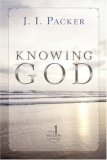
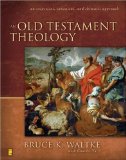



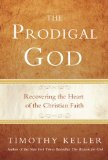
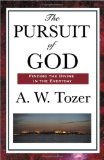
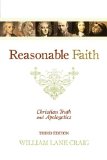

Forthcoming Books: Former Prof Edition
Posted in Bible Scholars, tagged 1 Corinthians, Brian Rosner, commentaries, John Jefferson Davis, Roy Ciampa, Worship on Friday, September 17, 2010| 1 Comment »
I don’t highlight forthcoming books very often, but when a couple of my former professors are coming out with good ones, I feel the need to jump in (and when I’m having trouble coming up with other blogging ideas).
I have no doubt this will be a fine commentary, I just wonder if it’ll be used as widely as it could, considering there are already many excellent 1 Corinthians commentaries out there (Fee, Thiselton, Garland, Hays- not to mention Witherington, Barrett, Fitzmyer, Blomberg, Keener, and probably more that I’m forgetting). There are few biblical books with as many good options to choose from. Nonetheless, people eat new commentaries up, and the Pillar series is one of the finest available, so I’m sure it’ll do well.
My point is this: you don’t really know what you’re going to get. If I get a chance to read this (it’s due about the same time as Pierce Baby #2, so that’s a big if) I bet I’ll be pumping my fist in agreement (what, you don’t do that when you read?) in one chapter, and shaking my head in the next. I like to read those kinds of books. At any rate, I’m excited for it’s release.
Read Full Post »